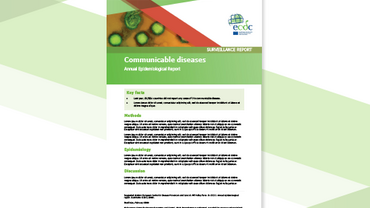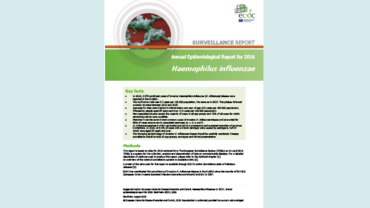External Quality Assurance scheme for Haemophilus influenzae, 2012
In May 2012 a collection of five strains of Haemophilus spp was sent to 28 participating reference laboratories in the IBD-labnet surveillance network for quality assurance testing. The laboratories were asked to characterise the five strains by performing standard laboratory protocols for the methods usually used by the laboratory for: species identification, biotyping and serotyping by serological methods and/or PCR.
The results of this EQA are published in the above report.
Executive summary
Improvements have been recorded in two External Quality Assurance (EQA) tests, two new reports reveal. One test, covering Haemophilus influenzae, which was conducted in 2012, found several improvements over the 2011 EQA distribution. The other test, covering Neisseria meningitidis, found that performances differed among the reference laboratories involved in the 2011 test, but that overall there had been improvements since the first one.
The 28 Haemophilus Reference Laboratories that took part in the test were asked to characterise five strains of Haemophilus by using standard laboratory protocols. Antimicrobial susceptibility testing was, however, difficult to interpret due to the use of different methods and breakpoints in different laboratories. The report recommends that all European laboratories adopt EUCAST antimicrobial susceptibility testing methods.
The N. meningitidis IBD-labnet EQA was deemed successful, with improvements being noted in the number and quality of responses to requested detection and characterisation targets. The report highlighted ‘generally excellent’ consensus levels, but noted that some laboratories were unable to confirm non-culture samples. Problems also occurred in the comparison of EQA distributions when samples were not identical.
Overall, the EQA performance demonstrates that European reference laboratories for meningococci differ in their capacities and in the characterisation of the distributed N. meningitidis isolates.
Targeted training and support to meet the needs of different laboratories may help to further improve results, the report said.
About External Quality Assurance
In general, EQA schemes enable laboratory performance to be assessed against reference methods and compared to other peer laboratories. They provide information about the accuracy of different characterisation and typing methods, as well as antimicrobial susceptibility testing and the sensitivity of the methods in place to detect and confirm a specific pathogen or novel resistance patterns.
ECDC promotes the performance of EQA schemes, in which laboratories are sent simulated clinical specimens or bacterial isolates for testing by routine and/or reference laboratory methods. EQA schemes or laboratory proficiency testing provides information about the accuracy of different characterisation and typing methods as well as antimicrobial susceptibility testing, and the sensitivity of the methods in place to detect a certain pathogen or novel resistance patterns.





